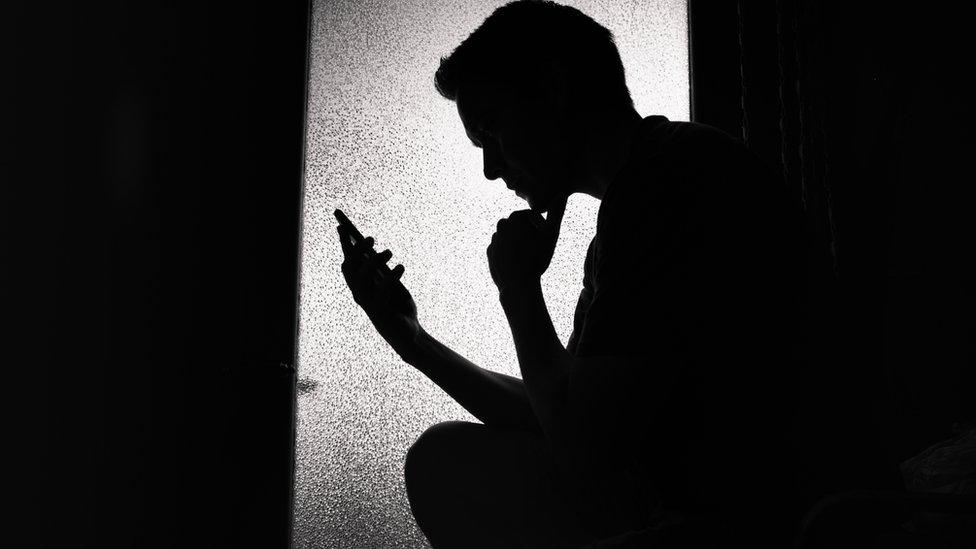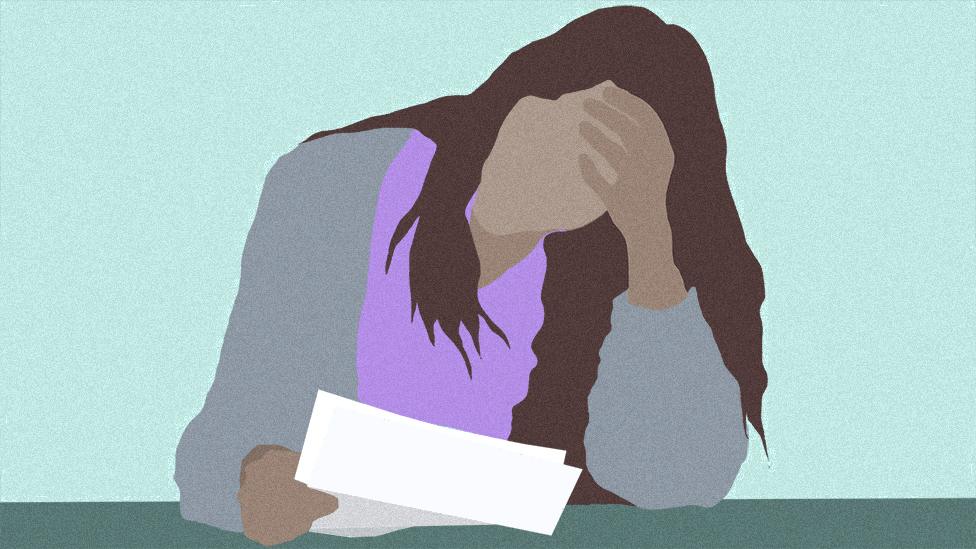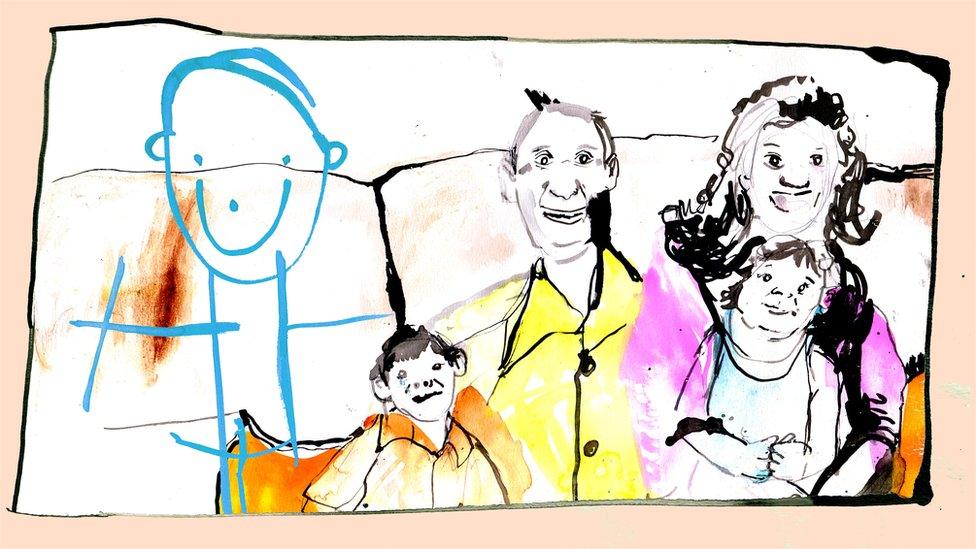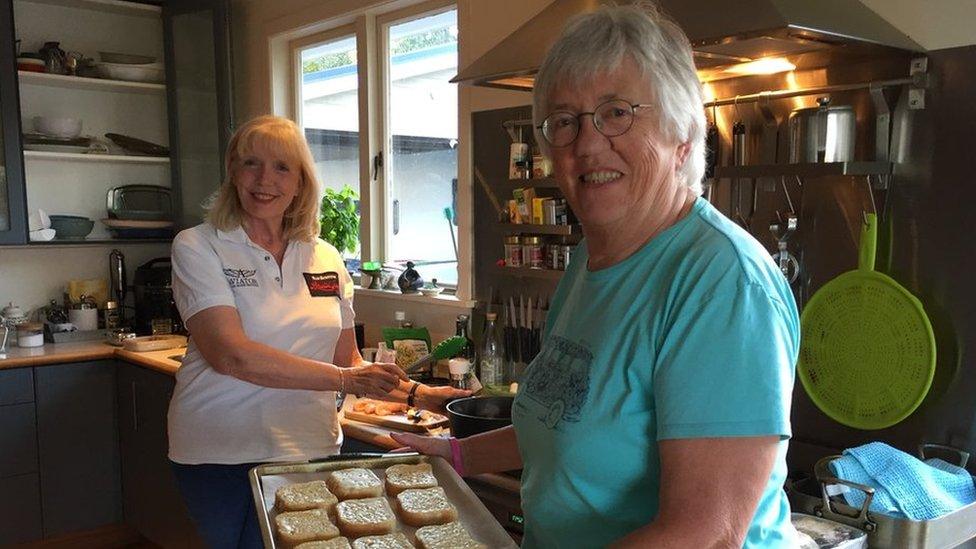Adoption: 'Our sons' birth family turned them against us'
- Published

Three-quarters of adopted children experienced neglect or abuse in their birth families, raising concerns about contact
Claire and Ed adopted their sons 13 years ago. When the brothers found their biological family on social media aged 15 and 16, it took just three months for them to cut off all contact with their adoptive parents.
Claire and Ed say their children were sent "intrusive" messages from their birth family and withdrew from their parents. Both children no longer attend school and there have been reports the older boy is involved in drug dealing.
"For us, it's just been devastating to have our family broken," Ed tells BBC Radio 4's Today programme. "But the big tragedy and the big, human cost is theirs. Because they've just been manipulated."
Adoption UK says such complete breakdowns of relationships are rare - but unsupervised contact is becoming more common.
The charity's research suggests nearly a quarter of adopted children make direct contact with their birth family - often via social media - before they gain the right to access information about their origins at the age of 18.
Former High Court family law judge Sir Mark Hedley says there are no legal means of preventing young people from using social media to get in touch with their biological family, and banning their relatives from responding could be counter-productive.
The situation has prompted a call from Labour MP Rachael Maskell, who chairs the all-party parliamentary group on adoption, for social services to enable safer, supervised contact before the age of 18.
Three-quarters of adopted child have experienced neglect or abuse in their birth families, according to Adoption UK, raising concerns that post-adoption contact could be risky in some circumstances.
Claire and Ed say despite more than 30 emails and repeated phone calls to social services and their regional adoption agency asking for support, no one intervened. "You just scream into a void for help," says Claire.
In October last year, before the contact happened, Claire says she felt her family seemed happy and settled, perhaps for the first time in years.
Their older son was attending a specialist school, having therapies which seemed to be helping him, while the younger boy was in a mainstream school, seemingly a "happy lad" on course for his GCSEs, she says.
The couple say their older child had been increasingly curious about his birth family and they had arranged for him to send a note through letterbox contact - a system that is used in many adoptions to keep birth families updated as a child grows up, monitored by the local authority.
But before that happened, it took him just a "matter of minutes" to look his family up on social media using details he had been given during the adoption process, they say.
His birth family welcomed the contact and were "very persistent" in keeping in touch. He began to go missing from home overnight and was found close to his biological family's house.
In December, he stopped going to school and Claire says there were allegations he had been dealing drugs. "He was completely knocked off course and started to follow a completely different life trajectory," she says.
Claire says the younger boy had been "resistant" to being introduced to his birth family, but was subjected to "intrusive" contact over phone and Facetime.

About a quarter of adopted children now search for birth relatives online
He withdrew from his adoptive family and from school, began meeting with his birth family, and would return with vapes, clothes and money, she says.
Claire says: "Our boys struggled with friendships, they struggled with school, they struggled with attention, they struggled to live within society's boundaries.
"And then what happens if a group of people come along and say, look, you don't need to go to school, you don't need to live in society's boundaries, we love you no matter what?
"[They say] 'Your parents are too harsh on you. They're too critical. And this is your escape clause.' I'm sure, you know lots of children, at that stage in their life would be tempted to move away from their families."
Now the couple say they have not had any meaningful contact with their sons for three months.
"They no longer live with us or regard as their parents and they don't want us to be their parents going forward. They're quite hostile towards us," Ed says.
He says the boys have blocked their adoptive parents' phone number, and when their sons initiate a call it is "not in a positive way".
"There might be a chance of amicable relations sometime in the future, but not as a family," says Ed.
He says they cannot compromise on their values of "hard work, honesty and being law-abiding" but they now think their sons are "in a different world to that".
They feel they cannot be a part of that world and cannot influence the boys back onto the right path, he says.
Claire says she felt they were "naive", believing themselves to be a close family unit. Ed says they had not been prepared for the possibility of contact before the boys were 18, and the result was "beyond any worst-case scenario we could ever have contemplated".
"You wouldn't believe it was possible for you to try to instil values and raise children for so many years and for it just to be totally wiped out in such a short amount of time," Claire says.
Charlotte Ramsden, president of the Association of Directors of Children's Services, says when children contact birth family through social media and relationships are damaged, it is a "really complex and tragic situation".
Modern adoption needs to recognise that "children have multiple attachments, they have complex identities, they are desperate to be loved and to understand their backgrounds", she says.
But while lifelong support and advice for adoptive families has improved, "it's not at the level we think it needs to be", Ms Ramsden says.
Trying to prevent contact by restricting information is not the answer, she says.
"In a sense that's where adoption was a very long time ago, that information wasn't shared with children, but that actually was proved to cause them more difficulties."
This story is based on Sinead Heekin and Mishal Husain's interview with Claire and Ed for the Today programme. UK audiences can hear it on BBC Sounds. Names were changed to protect the identities of children.


Related topics
- Published31 March 2021

- Published20 September 2020

- Published10 April 2020
